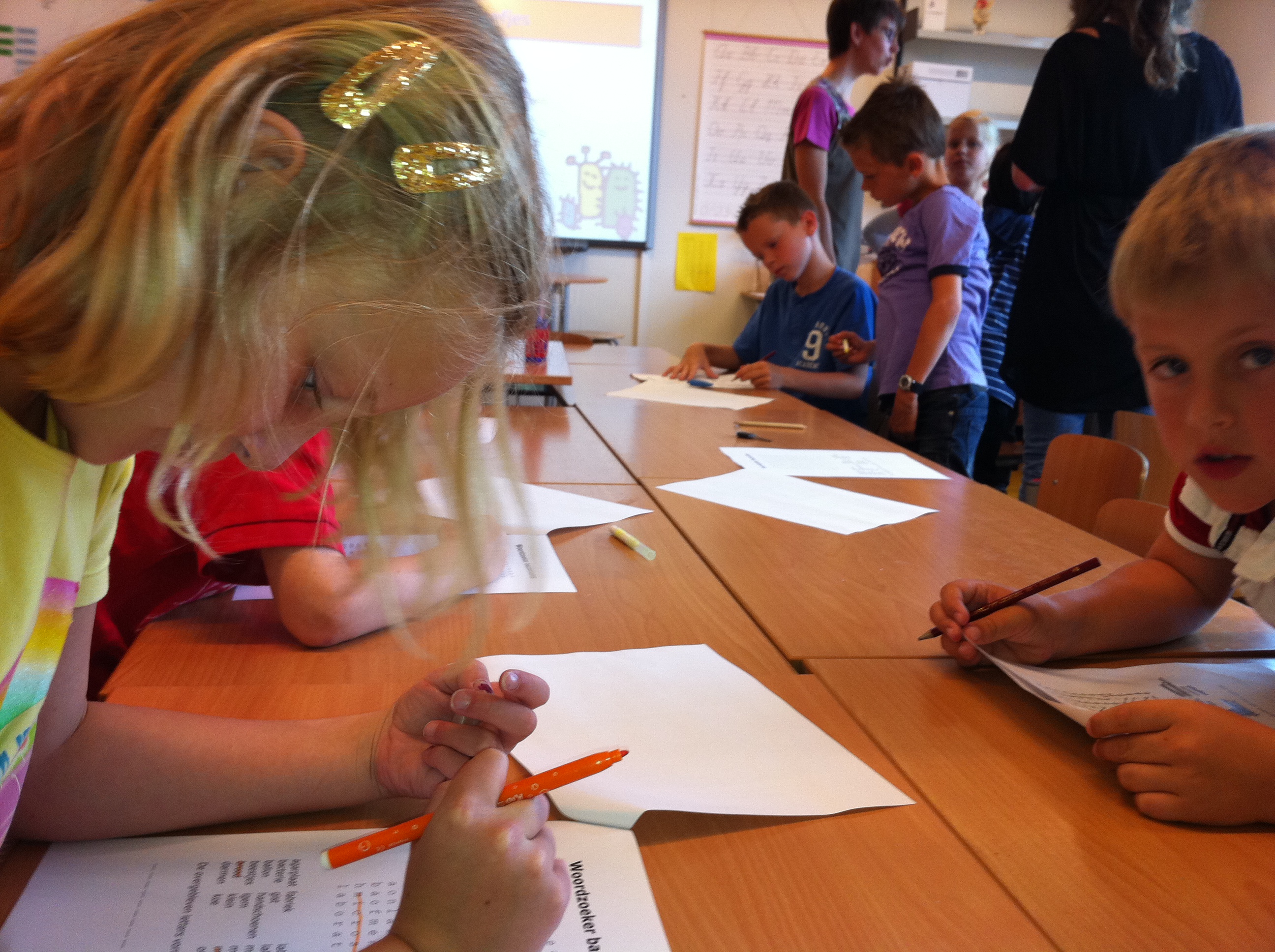Team:Wageningen UR/Outreach.en
From 2011.igem.org
(→Introduction) |
RubenvanHeck (Talk | contribs) (→Introduction) |
||
| (16 intermediate revisions not shown) | |||
| Line 21: | Line 21: | ||
{{:Team:Wageningen_UR/Templates/Outreach_Style | text= __NOTOC__ | {{:Team:Wageningen_UR/Templates/Outreach_Style | text= __NOTOC__ | ||
| - | |||
| - | We visited several primary schools for a guest | + | |
| + | The iGEM team Wageningen UR 2011 paid a lot of attention to outreach. We think it is important that people know what synthetic biology is about. Knowledge could make people less afraid of new technologies and thus also more willing to accept innovations in the field of synthetic biology. We discovered that most Dutch high school students have some knowledge concerning biotechnology, but only a few are familiar with synthetic biology. Of course synthetic biology is a relatively new field in biology and the way high school students are taught partially depends on the preference of their teachers and parents. | ||
| + | |||
| + | Nevertheless, teaching about topics in biotechnology is important for the acceptance of it. Scientists very easily forget that their work can be frightening for people that do not know about synthetic biology. Some people fear that genetically modified organisms can take over the world or that eating genetically modified food will make you ill. Therefore scientists should spend more time in explaining their work and informing people, making their research much more transparent. | ||
| + | |||
| + | With outreach our team tried to raise that transparency. We found a new approach in getting synthetic biology under the attention of young students. On this special wiki page you can find all the activities the Wageningen UR team did in this way of human practices. | ||
| + | |||
| + | We visited several primary schools for a guest lecture about bacteria and fungi and on one of the primary schools we had a mini iGEM competition named MiniGEM in which 275 children participated. | ||
Furthermore we held lectures for high school students to teach about synthetic biology. | Furthermore we held lectures for high school students to teach about synthetic biology. | ||
Latest revision as of 03:17, 22 September 2011
 "
"



